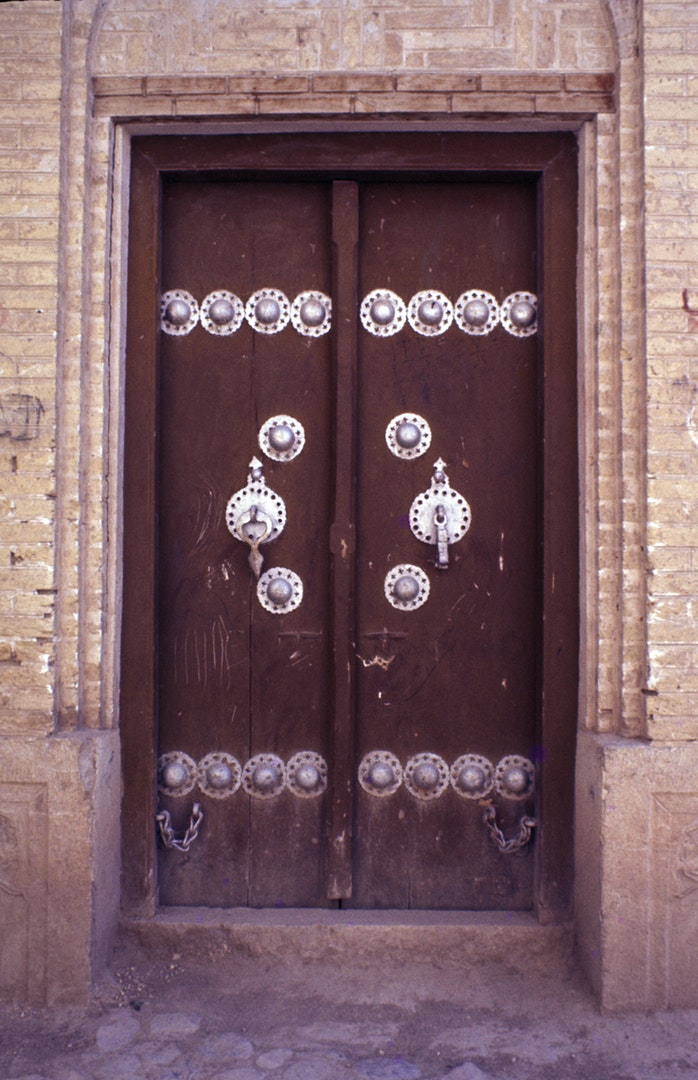
The Gate to Eternal Life
by ROXANA KARAMZADEH
It is better to guide one soul than to possess all that is on earth, for as long as that guided soul is under the shadow of the Tree of Divine Unity, he and the one who hath guided him will both be recipients of God’s tender mercy, whereas possession of earthly things will cease at the time of death. The path to guidance is one of love and compassion, not of force and coercion. This hath been God’s method in the past, and shall continue to be in the future! He causeth him whom He pleaseth to enter the shadow of His Mercy. Verily, He is the Supreme Protector, the All-Generous. (Selections from the Writings of the Báb, 77)
This year, on October 28th, Bahá’ís around the world will celebrate the bicentenary of the Birth of the Báb or “Gate,” one of the Central Figures of the Bahá’í Faith. In honor of this occasion, I decided to set down my reflections on one of my favorite passages from the Writings of the Báb. The passage I chose is an excerpt from the Persian Bayan in which the Báb writes about the purpose of human life.
In the first sentence of this passage, the Báb writes as follows: “It is better to guide one soul than to possess all that is on earth.” This is a powerful and sweeping claim. Here, the Báb asserts that no act is more worthy than that of teaching a fellow human being how to live a life of faith. One might dream of possessing infinite riches and of the ease that would bring, yet, according to the Báb, such riches are as nothing in comparison with this single noble act. After reading this passage, I understood that by guiding even one person to the recognition of Bahá’u’lláh, I would reach the highest goal in the life of any true believer and so become the recipient of countless divine blessings.
But what does it mean to guide a soul? For me, guiding a soul means sharing the teachings of this latest religion from God with all who might cross my path, for it is by following these teachings that people will attain the condition of true happiness and so experience firsthand the proof of their veracity. At the heart of the teachings of the Manifestation is this truth: the things of this world are transient — they will be left behind in the end. But to bring another soul to the recognition of the Manifestation of this day will confer eternal blessings. This impact of this action will endure throughout the ages.
In the next part of the passage, the Báb writes that “for as long as that guided soul is under the shadow of the Tree of Divine Unity, he and the one who hath guided him will both be recipients of God’s tender mercy.” Here, the Báb likens Bahá’u’lláh to a tree. A tree offers protection from the sun; its shade is soothing. And listening to the wind blow through its branches can give one a feeling of peace. In the same way, those who recognize Bahá’u’lláh and follow His counsels are able to enjoy the shade of a grand and majestic tree. Read another way, the tree symbolizes the life of faith. So many people strive to gain material things, such as power, money, and even education. But the Báb warns us that the true goal of life is this and only this: to guide other souls. When one comes to understand fully the nature of this sublime goal, all other goals seem inconsequential, even absurd.
The Báb goes on to explain: “The path to guidance is one of love and compassion, not of force and coercion. This hath been God’s method in the past, and shall continue to be in the future.” Here, the Báb reminds those who read His words that they cannot guide others by using persuasion; they have to draw upon the power of love and infinite caring. I was struck by the Báb’s emphasis on the importance of love in sharing the divine teachings. To be sure, one cannot guide another soul to the truth of this dispensation without love, but, in the end, faith is, as the Báb explains, a gift from God: “He causeth him whom He pleaseth to enter the shadow of His Mercy. Verily, He is the Supreme Protector, the All-Generous.”
It is clear from the Báb’s words that one’s efforts at gaining material wealth and power bear no fruit in the end. If one wants to be the recipient of the love and mercy of God, one should let go of attachment to the material world, and set one’s sights on the true purpose of life: to guide others spiritually. This is the ultimate goal. This is the true destiny of every human being. Those who seek to follow the guidance of the Báb, therefore, must make every effort to acquaint others with the teachings of Bahá’u’lláh. This is the only path to true felicity. This is the only enduring blessing. In this beautiful and powerful passage from the Bayan, the Báb, the Gate, promises each one of us that by guiding even a single soul, we will be enabled to pass through the gate to eternal life.
Photo Credit: Copyright © Bahá’í International Community, Bahá’í Media Bank, View of the front door of the House of the Báb, Shiraz

